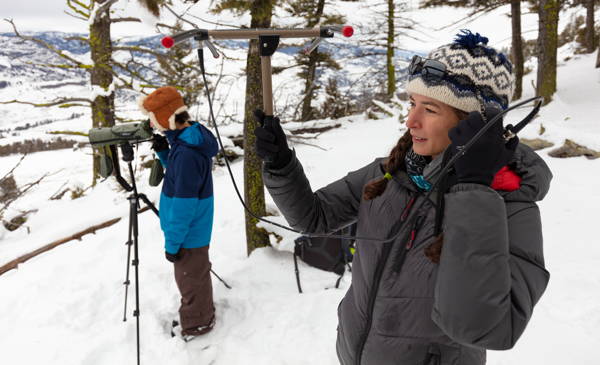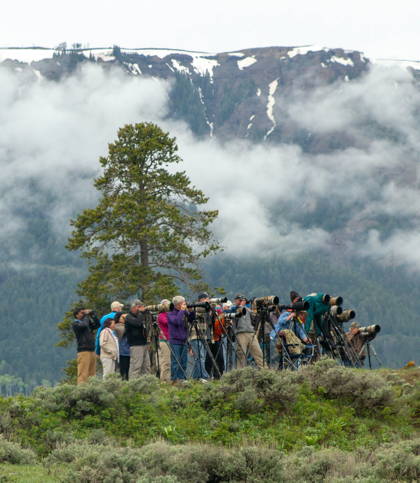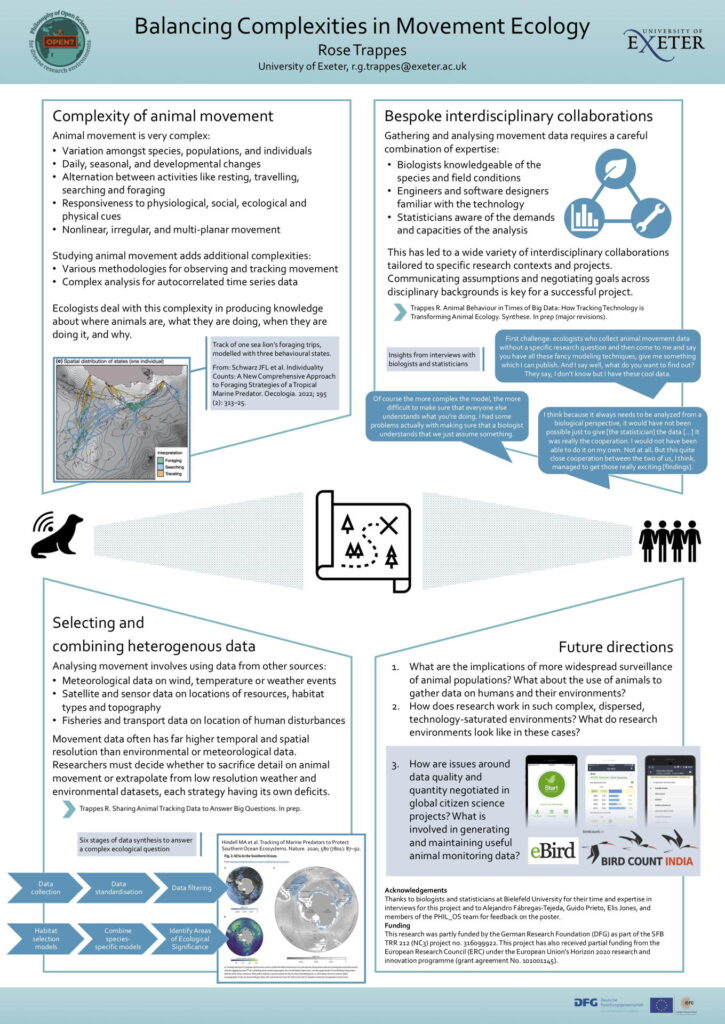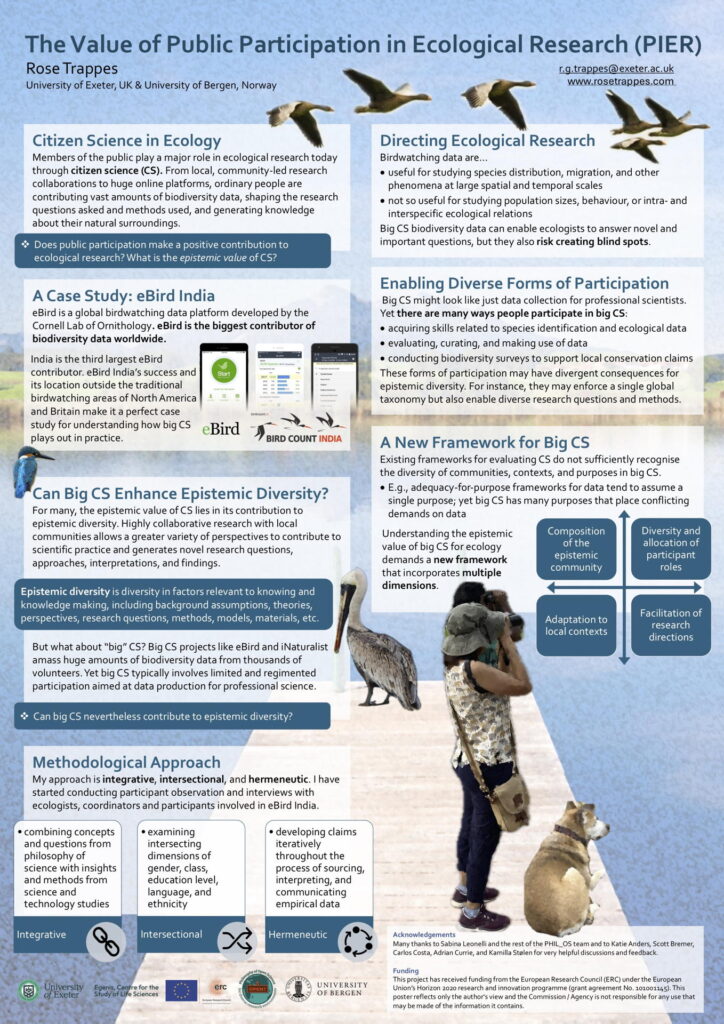- Lead: Rose Trappes
- Collaborators: eBird India
- Locations: online, India

Ecology is increasingly data-centric. Through large collaborations, open data practices, and global citizen science, huge datasets are being amassed on organisms and their environments. There is also a wealth of databases and other resources for storing, sharing, and using ecological data for research and conservation. Biologists make use of these resources to study ecological systems and address pressing problems like climate change and habitat loss.
We investigate the place of open science practices in this shift towards a data-centric ecology. What does it mean to open up the collection, curation, and use of ecological data? How will open science affect ecology and conservation biology?

With a focus on animal ecology, we examine:
- The use of open data for addressing ‘big questions’ in ecology and conservation biology, looking at the example of sharing and synthesising animal tracking data.
- The coordination of local expertise in global citizen science, with the example of how the international birdwatching data platform eBird is implemented locally.
Selected publications
Posters


- Trappes, R (2024) “Balancing Complexities in Movement Ecology”
- Trappes, R (2024) “The Value of Public Participation in Ecological Research (PIER)”
Special issue
- Trappes, Rose and Sabina Leonelli (Eds., forthcoming). The Nature of Research Environments (Topical Collection). European Journal for Philosophy of Science
Peer-reviewed articles
- Leonelli, Sabina and Rose Trappes (In preparation). Research in the Multiplex: When Scientific Practices Inhabit Multiple Research Environments
- Trappes, Rose and Sabina Leonelli (Under Review). Conceptualising Research Environments: Insights from Biological Concepts of Niche. European Journal for Philosophy of Science
- Trappes, R. (2024) Data Synthesis for Big Questions: From Animal Tracks to Ecological Models. Philosophy, Theory, and Practice in Biology 16(1): 4. doi: 10.3998/ptpbio.5259
- Trappes, Rose (2023). How Tracking Technology is Transforming Animal Ecology: Epistemic Values, Interdisciplinarity, and Technology-Driven Scientific Change. Synthese. 201: 128. https://doi.org/10.1007/s11229-023-04122-5
Selected presentations
Invited talks
- Online Seminars on Open Science, Italian Reproducibility Network (online, 3 April 2024): “Philosophy of Open Science”
- Symposium BioGovernance and Science Diplomacy: The Past and Future of UK-India Dialogues (RIS India/University of Kent/online, 19 August 2023): “Changing Direction for Open Science”
- Science Studies Colloquium Series (University of Oslo, 7 June 2023): “Philosophy of Open Science”
- Evolution seminar, (Bielefeld University, 9 May 2023): “How does open science change science? Contributions from philosophy”
- PHIL_OS Exploratory workshop “Whither Open Science“ (University of Exeter, 30 March 2023): “Dynamics of Epistemic Diversity in Citizen Science“
- Philosophy of Science Colloquium, (Bergen University, 20 April 2023): “Exploring the Consequences of Open Science”
- Panel discussion, conference of the British Society for Philosophy of Science (BSPS) (University of Exeter, 8 July 2022): “Open Science and Philosophy”
Submitted talks
- Conference of the European Philosophy of Science Association (EPSA) (Belgrade, 20 September 2023): “Using Ecological Niche Theories to Understand Research Environments”
- Biennial conference of the International Society for the History, Philosophy and Social Studies of Biology (ISHPSSB) (University of Toronto, 12 July 2023): with Sabina Leonelli, “What can be learnt about research environments from niche concepts?”
- Annual Philosophy of Science India Conference (Azim Premji University, 22 June 2023): “The Challenges of Evaluating Citizen Science Data”
- Perspectives on Scientific Practice symposium (University of Exeter, 15 March 2023): “Niche-based theories of scientific practice: A scoping survey”
- Conference of the Society for Philosophy of Science in Practice (SPSP) (Ghent, 3 July 2022): “Sharing Movement Data to Answer Big Questions: Are there Trade-Offs in Opening Ecological Observation?”